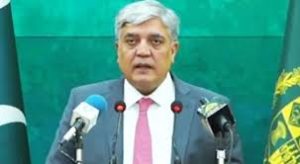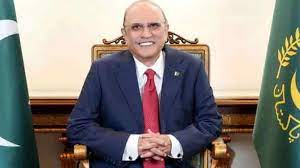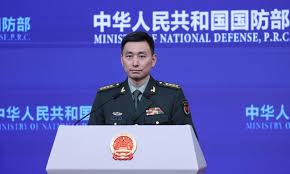Unending sufferings of Kashmiri families with over 22,000 women widowed, 107,000 children orphaned: FO

Celina Ali
Islamabad: Pakistan on Friday said that with over 22,000 women widowed and 107,000 children orphaned, the sufferings of the families in the Indian Illegally Occupied Jammu and Kashmir (IIOJK) remained unended due to the unabated occupation and oppression of the Indian forces.
Foreign Office Spokesperson Mumtaz Zahra Baloch, at her weekly press briefing, expressed solidarity with the Kashmiri families that remained divided and continued to suffer due to Indian oppression for the last several decades.
“The estimates of widowed women and orphaned children exceed 22,000 and 107,000 respectively. Thousands of half-widows are awaiting the return of their husbands who have presumably been killed by Indian forces. The plight of the families of the victims of enforced disappearance is equally lamentable,” the spokesperson remarked, referring to the annual International Day of Families observed on May 15.
Calling the ruthless Indian oppression the root-cause of the sufferings of Kashmiri families, the spokesperson urged India to allow Kashmiris to practice their right to self-determination as guaranteed by the United Nations Security Council’s resolutions.

Highlighting the diplomatic engagements that took place during the last week, the spokesperson started with the visit of Deputy Prime Minister and Foreign Minister Senator Ishaq Dar to China to co-chair the Fifth Pakistan-China Foreign Ministers’ Strategic Dialogue with Chinese Foreign Minister Wang Yi, where he also met with Chinese vice premier, and ministers for IDCPC and finance and others.
In the Dialogue, Pakistan and China agreed to strengthen mutual cooperation to safeguard common interests, promotion of peace and prosperity, enhance exchanges, and deepen ties in all areas of mutual benefit. Both sides also agreed to work for the upgraded version of China-Pakistan Economic Corridor by jointly building a growth corridor, a livelihood-enhancing corridor, an innovation corridor, a green corridor and an open corridor, by aligning them with Pakistan’s development framework and priorities.
The two sides agreed to accelerate progress on major connectivity projects, including upgradation of ML-1, the Gwadar Port, realignment of the Karakoram Highway Phase II, and to strengthen cooperation in agriculture, industrial parks, mining, information technology and other fields.
China reiterated its position on the Kashmir issue calling for its peaceful resolution in accordance with the UN Charter, relevant UN Security Council resolutions and bilateral agreements.
She also apprised the media of the 6th Round of Pakistan-Latvia Bilateral Political Consultations (BPC) held here wherein the two sides agreed to expand bilateral cooperation in trade and investment, energy, education and technology, and labour mobility.
At the Pakistan-U.S. Counterterrorism Dialogue held on May 10, 2024 in Washington DC, she said both countries underscored the mutual cooperation in addressing the most pressing challenges to regional and global security, including Tehreek-e-Taliban Pakistan (TTP) and ISIS-Khorasan.
About the 6th Round of Pakistan-United Kingdom Dialogue on Arms Control and Non-Proliferation held here on May 15, 2024, the spokesperson said the two countries shared their perspectives on issues concerning global and regional security, new and emerging technologies, including the military use of artificial intelligence and the peaceful applications of nuclear technology.
Spokesperson Baloch said that Pakistan supported the resolution passed by the UN General Assembly for full UN membership of Palestine. She said that the resolution determined that the State of Palestine was qualified for membership and recommended that the Security Council reconsider its request favourably.
The spokesperson informed the media that Deputy Prime Minister Dar would visit Kazakhstan on May 20-21, at the invitation of his Kazakh counterpart, to attend the regular meeting of SCO Council of Foreign Ministers in Astana. He would also hold meetings with counterparts and other participating leaders, she added.
Besides, Turkish Foreign Minister Hakan Fidan is scheduled to visit Pakistan from May 19-20 when he will meet the foreign minister, prime minister, National Assembly speaker and Senate chairman.
Similarly, Secretary General of SAARC Golam Sarwar is due in Pakistan on May 20-24 on a maiden and introductory visit to all member states. He will meet senior leadership and interact with the intelligentsia, besides visiting the offices of SAARC bodies in Islamabad.
To a question, the spokesperson said that Pakistan had a solid brotherly relationship with Iran and during the recent visit of the Iranian President, several agreements and understandings were reached for strengthening the connectivity, including the sister ports relationship between Gwadar and Chahbahar.
She urged Afghanistan to take action against terror groups that threaten Pakistan’s sovereignty and security. Pakistan had always said that it would defend itself against any threat to its security and sovereignty, including from terror groups that threaten its security, she added.
Responding to a query, she said the recent statements from the Indian authorities reflected an unhealthy and entrenched obsession with Pakistan and revealed a deliberate intent to exploit hyper-nationalism for electoral gains.
“These also signify a desperate attempt to deflect attention from mounting domestic and international criticism… We reiterate that historical facts, legal principles, moral considerations and ground realities refute India’s baseless claims and Jammu and Kashmir remains an internationally-recognized disputed territory as the UN Security Council resolutions clearly mandate a plebiscite under auspices of the United Nations. We believe that no amount of inflated Indian statements can change this reality.”
Asked whether Pakistan was willing to hold discussions with the TTP through tribal Jirga, the spokesperson reiterated that the country had no plans to undertake any talks with a terrorist group that continued to threaten its security, and had been involved in killings of Pakistani civilians and law enforcement officials.
About the recent reports of the US think tanks denying the One-China principle and obscuring Taiwan’s political status, Baloch said Pakistan adhered to the One-China policy and considered Taiwan as an inalienable part of China.





